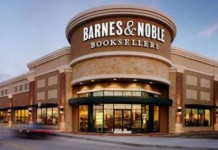 On Maximum PC, author David Gerrold slots the e-book into place as the latest member of a distinguished lineage of disruptive media that build on what came before them. Movies built on novels and Broadway plays, radio built on records and vaudeville, television built on radio, and so on.
On Maximum PC, author David Gerrold slots the e-book into place as the latest member of a distinguished lineage of disruptive media that build on what came before them. Movies built on novels and Broadway plays, radio built on records and vaudeville, television built on radio, and so on.
He points out that the imperative for old media when faced with the new has always been “adapt or die”—and litigating has historically been a poor method of adapting. (He brings up the example of Lotus 1-2-3, which essentially sued itself out of existence.) He brings up the e-book reader, with its attendant features and advantages. And he suggests the e-book is beginning to reinvent itself.
E-book readers, he notes, are good for more than just e-books now—many of them also know how to handle magazines, blogs, RSS feeds, comics, and other print media. And the Kindle itself (and to a lesser extent the Nook) has moved beyond being just a hardware reader—with apps for many other platforms, it’s now part of a whole Kindle (or Nook) medium. As a result, the stand-alone e-book reader may be relatively short-lived if tablets can improve enough to match the quality of their reading experience.
Also, by greatly decreasing the resources needed to publish, the e-book reader is shifting publishing from a culture of scarcity toward a culture of abundance. Not only can anyone publish an e-book of any quality now (and in fact a lot of people are), but established writers can put their backlist back into circulation and pick up more income that way.
Gerrold suggests that just as movies, radio, TV, and the Internet changed over time from their backward-looking inceptions, the e-book is about ready to get over its focus on the past—being a new way to view old media—and inventing new forms of its own.
































